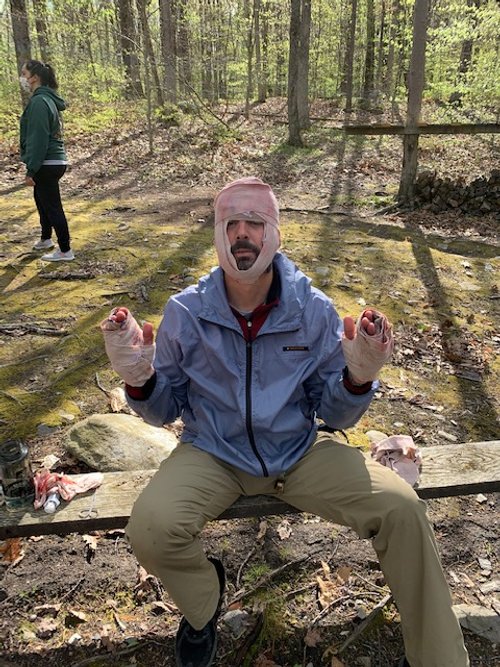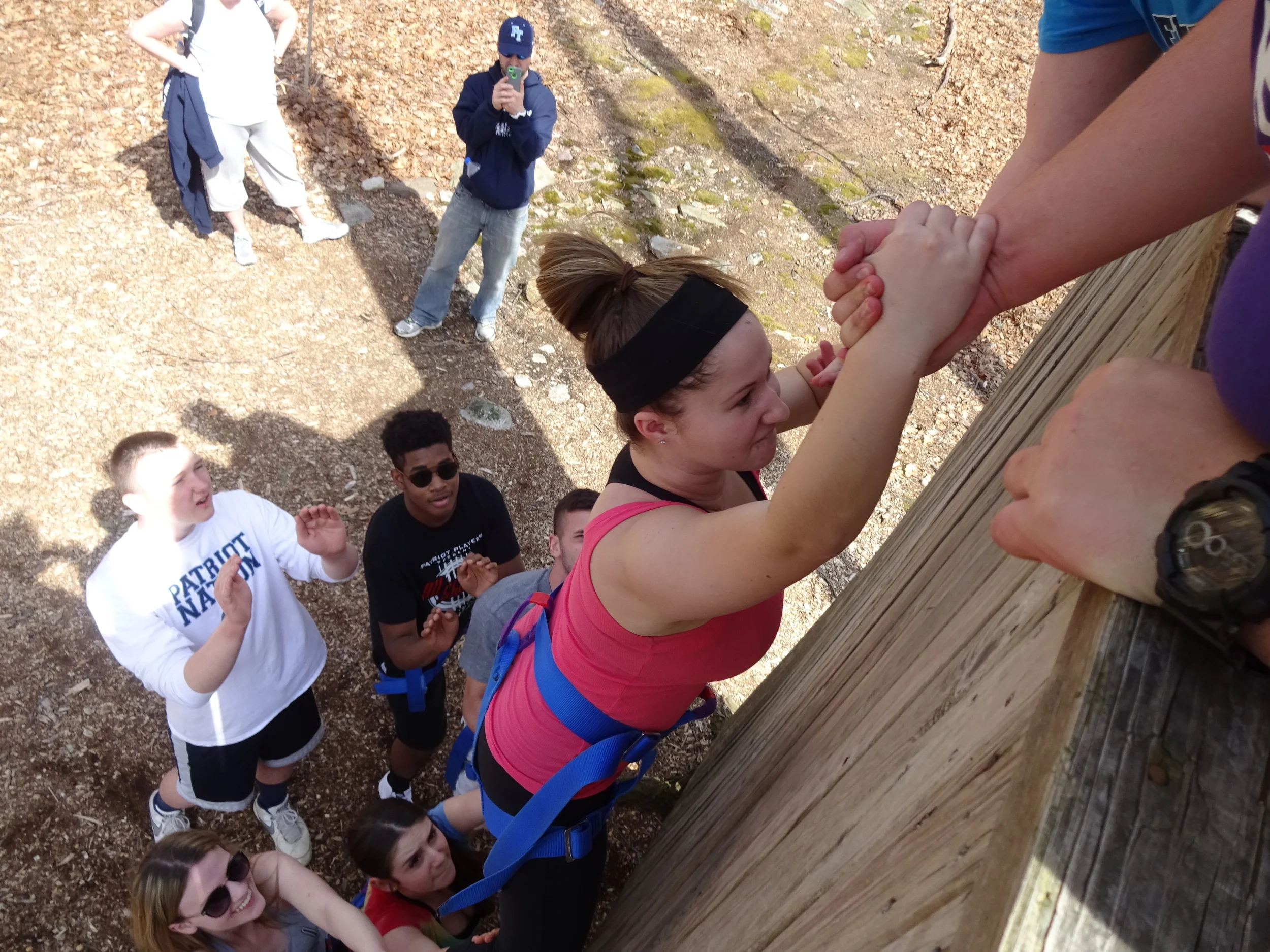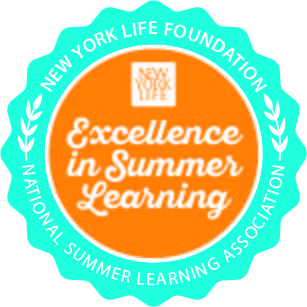Scaffolding Princeton-Blairstown's Curriculum
/Learning isn’t a “one size fits all” kind of thing. Every student and group is unique in ability, creativity, and needs which is why the Princeton-Blairstown Center actively works to scaffold their curricula to meet students “where they are at” and to encourage them to learn, grow, and lead throughout their experience at the Center.
Holly Lynn, Program Manager and Summer Bridge Coordinator says that the ability to meet student needs starts with staff training. Learning how to recognize and identify different stages of youth development is an essential part of training that helps inform the Center’s staff on how to choose appropriate tasks, lessons, and discussions and how to approach group facilitation. Staff learn how to recognize these different stages through a variety of ways including role-playing games. For instance, a staff member may act out a specific developmental stage with as many “markers” as possible. Markers of each developmental stage vary but could include types of reactions commonly seen in interactions with peers versus adults, physicality, interests, etc.
“Age is not the most informative factor in determining a group’s social-emotional or academic abilities,” Holly insists. “The pandemic has greatly affected student development. Lived trauma and stress can exacerbate or stagnate these stages. Students may act more mature in some situations and then act much younger in others.”
The Summer Bridge Program is one of the Center’s crowning jewels. The academic and leadership enrichment program is designed to serve youth who may not otherwise have access to summer learning opportunities and incorporates curricula focused on STEM, Literacy, social emotional learning, and service learning, AND provides students with quintessential summer adventures like hiking, swimming, and roasting s’mores around a campfire. “Having a space like Summer Bridge where students can come for an entire week, with activities and curriculum tailored to them - including opportunities for social-emotional learning and growth is incredible. This program gives students a chance to make mistakes, grow, and be supported by their peers and mentors,” Holly said.
The Princeton-Blairstown team isn’t afraid to make changes in real time to better benefit students and enhance learning. In 2021, part of the Center’s Literacy curriculum included focusing on understanding the idea of the importance and significance of names as well as understanding and discussing personal values. Holly reported that staff were having deep, insightful conversations about names but that the values discussion lacked the same depth.
Using this feedback, Holly designed a new and different activity designed to foster a more authentic and meaningful experience around understanding values by attaching it to the names discussion. By writing the alphabet on sticky paper and creating a list of adjectives for each letter, students were able to write an acrostic poem using their name. Not only did students have to create the acrostic poem, but they had to be able to explain their choices. For instance, if a student’s name was Hannah, they may have used the adjective “honest” to represent the H in their name in their acrostic poem. To take it a step further, they would then have to explain, “I am honest in this way…” or they may use the n to say “I get nervous when these things happen…” This allowed students to understand values better when the topic arose in their literacy lessons.
Holly says that the role of the Facilitator is to encourage growth and help connect students with their peers and mentors. She treats everyday like a “blank slate” knowing that nothing – students, activities, lessons, or even weather – won’t be perfect all the time.
“I don’t know what is going on people’s heads, in their hearts, or what they have on their shoulders,” Holly said. And at the end of the day “it’s their experience, not mine.”






















